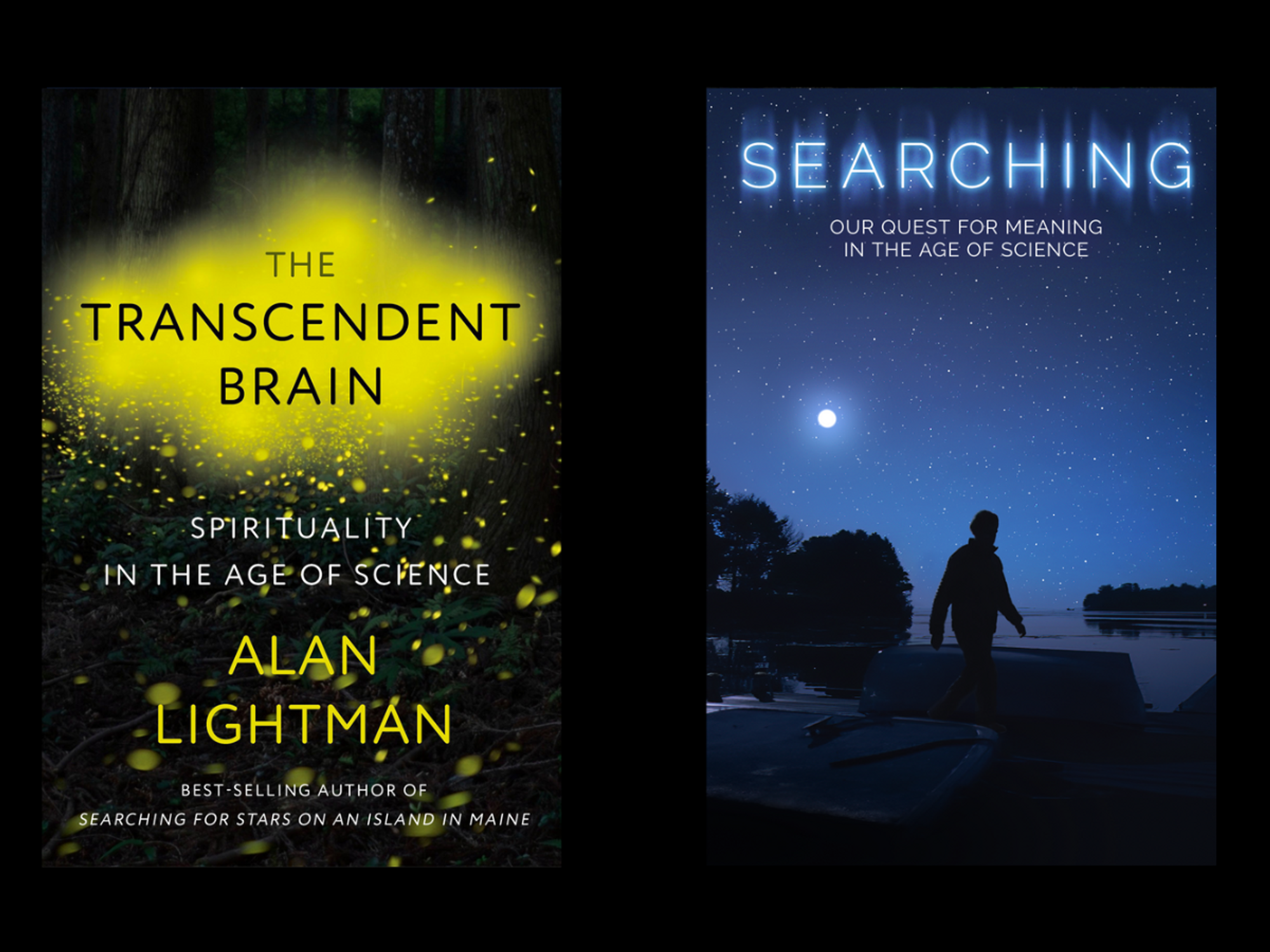
Spirituality in the Age of Science: A Conversation With Alan Lightman
Gazing at the stars, falling in love, or listening to music, we sometimes feel a transcendent connection with a cosmic unity and things larger than ourselves. But these experiences are not easily understood by science, which holds that all things can be explained in terms of atoms and molecules. Is there space in our scientific worldview for these spiritual experiences?
According to acclaimed physicist and novelist Alan Lightman, there may be. In his latest book The Transcendent Brain: Spirituality in the Age of Science, and his new public television mini-series, SEARCHING: Our Quest for Meaning in the Age of Science, Lightman draws on intellectual history and conversations with contemporary scientists, philosophers, and psychologists and asks a series of thought-provoking questions that illuminate our strange place between the world of particles and forces and the world of complex human experience. Can strict materialism explain our appreciation of beauty? Or our feelings of connection to nature and to other people? Is there a physical basis for consciousness, the most slippery of all scientific problems?
Lightman weaves these investigations together to propose what he calls “spiritual materialism”—the belief that we can embrace spiritual experiences without letting go of our scientific worldview. In his view, the breadth of the human condition is not only rooted in material atoms and molecules but can also be explained in terms of Darwinian evolution.
Follow Alan Lightman on this enlightening journey that reveals spirituality may not only be compatible with science, it also ought to remain at the core of what it means to be human. Lightman will be in conversation with Tim McHenry, Deputy Executive Director of the Rubin Museum of Art.
After the talk, enjoy tacos from Wah Gawaan and co-create a poem dedicated to the universe—or to a special someone—with a typewriter poet joining us from The Poetry Society of New York.
Alan Lightman is an American writer, physicist, and social entrepreneur. He received his PhD in theoretical physics in 1974. Since then, Lightman has done fundamental research on the astrophysics of black holes, astrophysical radiation processes, and stellar dynamics. He is a past chair of the High Energy Division of the American Astronomical Society and is an elected member of the American Academy of Arts and Sciences. Lightman has served on the faculties of Harvard and the Massachusetts Institute of Technology (MIT) and was the first person at MIT to receive dual faculty appointments in science and in the humanities. He is currently professor of the practice of the humanities at MIT.
Lightman is the author of numerous books, both nonfiction and fiction, including Einstein’s Dreams, an international bestseller, and The Diagnosis, a finalist for the National Book Award in fiction. His essays concern the intersection of science, philosophy, and theology and have been twice named by the New York Times as among the best dozen essays of the year, in any category. His writing has appeared in the Atlantic, Granta, Harper’s, Nautilus, the New Yorker, the New York Review of Books, Salon, and many other publications.
In 2005, Lightman founded Harpswell, a nonprofit organization devoted to empowering young women leaders in Southeast Asia, and he has served as chair of its board. Lightman is the host of the television series SEARCHING: Our Quest for Meaning in the Age of Science, which premiered on public television in January 2023. The series is based on Lightman’s books Searching for Stars on an Island in Maine (2018) and The Transcendent Brain, Spirituality in the Age of Science (March 2023).
Tim McHenry is the Deputy Executive Director of the Rubin Museum of Art and for over twenty years, since the museum’s inception, Tim has been providing visitors with what Huffington Post has called “some of the most original and inspired programs on the arts and consciousness in New York City.” Many ground-breaking museum-wide experiences, such as the Dream-Over, the Memory Palace, and The Game of Life were introduced as part of his long-running science series Brainwave. In the past 16 years Brainwave’s freewheeling conversations between (mainly: neuro)scientists and others has paired Stephen Pinker with Steven Sondheim, Kevin Ochsner and Janeane Garofalo, David Eagleman with Whoopi Goldberg, Judith Grisel and Zachary Quinto, Stuart Firestein with Questlove, Deidre Barrett and Amy Tan, and memorably, Pioneer Works’ own Janna Levin with Laurie Anderson in 2010. The current Mandala Lab installation is the culmination of this integration of science, Buddhist wisdom traditions and artistic innovation in order to engender empathetic experiential engagement as a means of heightening self-awareness and wellbeing.
This project is supported by Science Sandbox, a Simons Foundation initiative dedicated to engaging everyone with the process of science, and the Alfred P. Sloan Foundation Program in Public Understanding of Science and Technology, bridging the two cultures of science and the arts.
SEARCHING was made possible through the generous support of The John Templeton Foundation.